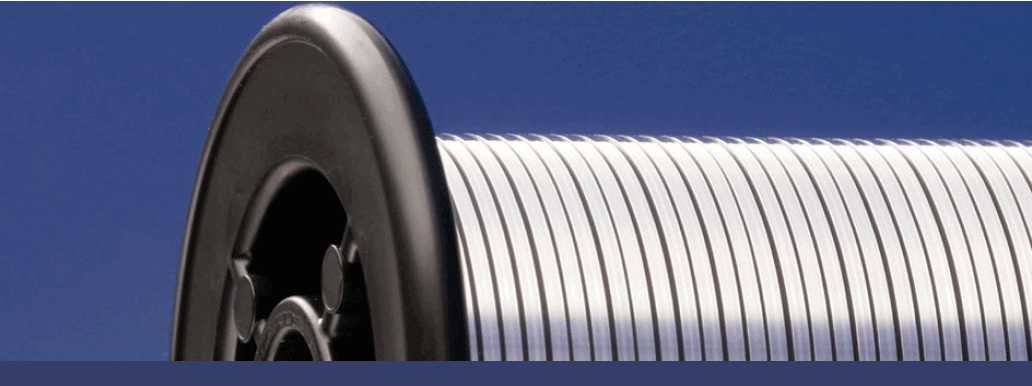Nickel is a popular material for wires because its top layer can resist extreme chemical corrosion, including air and water oxidation. Nickel alloys are also resilient against acids and alkalis. Nickel wire is frequently used in products containing electrical components or those that experience high levels of heat (up to 2,600 °F). The material is also magnetic as long as it remains below 350 °F. Beyond this point, it will lose its magnetic properties.
California Fine Wire manufactures high-quality custom wire products for a vast range of applications and industries. We can draw nickel wires to diameters as small as 0.0004 inch and offer various configurations, such as round, duplex, ribbon, or stranded. Our other wire materials include aluminum, copper, thermocouple alloys, gold, silver, platinum, and more.
Types Of Nickel Wire
Nickel wires come in a variety of alloys. The following are the most common types.
Pure Nickel Wire
Pure nickel is one of the most valued metals in the world. Because of its superior malleability and ductility, nickel wires can be stretched to achieve thinness that would break other metals. Pure nickel wires are also excellent conductors of heat and electricity. For these reasons, nickel wires are used most commonly in the aerospace and medical industries.
Copper-Nickel (Monel) Wire
Composed of roughly two-thirds nickel, one-third copper, and trace amounts of iron, carbon, silicon, and manganese, Monel is stronger than pure nickel. Monel is also highly corrosion-resistant, especially in seawater. Therefore, this material is popular for marine and chemical processing applications.
Nichrome
Also known as nickel chrome, nichrome is a nickel and chromium alloy with varying levels of each metal. The number following the nichrome type indicates the proportion of nickel to chromium. For example, Nichrome 60 consists of about 60% nickel and 40% chromium.
Nichrome is especially effective at heat and oxidation resistance, often serving as the heating element in household appliances like toasters and hair dryers. Ceramic sculptors, glassmakers, laboratories, and construction sites also use nichrome to heat objects.
Nickel Wire Benefits
Nickel wire offers the following advantages to any application.
- Corrosion resistance
- High-temperature resistance
- Electrical conductivity
- Oxidation resistance, especially in saltwater
- Acid, alkali, and dry gas resistance
- Excellent ductility
- Exceptional mechanical strength
Applications And Industries For Nickel Wire
These are just some of the industries that rely on nickel wire for everyday operation.
- Oil and gas: Offshore rigs and onshore plants utilize nickel wire for corrosive, high-temperature fuel production.
- Medical: Medical devices need wires that effectively conduct heat and electricity, so they often contain nickel wire.
- Aerospace and defense: Aircraft turbines feature nickel wires because they must withstand high temperatures and pressures.
- Manufacturing: Radiant tubes and other heat treating equipment rely on nickel wires to help manufacture metal components.
- Marine: Nickel wires make shipbuilding and other marine operations possible.
- Electronics: Nickel wires are essential for products like electrical contacts, fasteners, and electronic parts.
Premium Nickel Wire From California Fine Wire
Because of its versatility and toughness, nickel wire is an ideal choice for many applications. This material is highly valued for its strength, ductility, conductivity, and resistance to corrosion and extreme temperatures.
At California Fine Wire, we manufacture wires based on your unique industry and application standards. We use only the highest quality raw materials and strive to exceed our customers’ expectations. We can insulate all our wire products with PTFE or enamel, and we can add a copper, gold, silver, tin, or extra nickel plating using our innovative electroplating capabilities. For more information about our products and services, contact us or request a quote.


